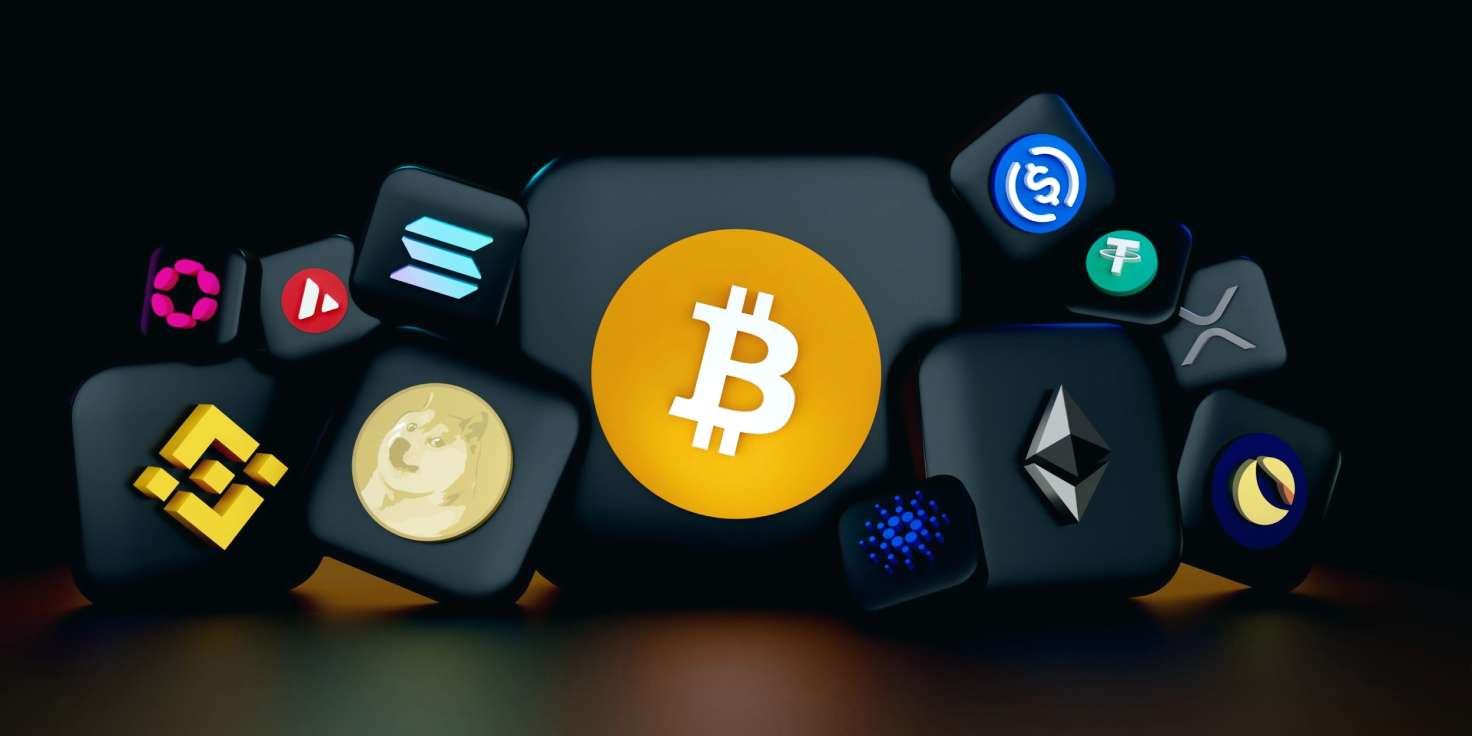Coins
Coins are native to their blockchains. Bitcoin (BTC) operates on the Bitcoin blockchain, and Ether (ETH) exists on Ethereum. Coins primarily serve as currency or settlement instruments for transaction fees.
The Complete Guide

Crypto token development is the structured process of designing, creating, and deploying blockchain-based tokens with defined functionality. Unlike digital coins, tokens do not require an independent blockchain. Instead, they leverage existing platforms such as Ethereum, Solana, or BNB Chain to operate.
Tokens are essential to blockchain ecosystems because they enable programmable value. They fuel decentralized applications, facilitate digital ownership, and establish trust in peer-to-peer transactions without intermediaries. Businesses increasingly recognize tokens as foundational building blocks for Web3 strategies.
Token development drives innovation across industries ranging from finance to supply chains and gaming. DeFi relies on tokens to enable lending, borrowing, and yield generation. Supply chain platforms use tokens for traceability and transparency. Game developers design token-based reward systems that merge digital economies with player engagement. This guide explores token types, standards, tokenomics, regulatory considerations, risks, and emerging trends, equipping businesses, developers, and innovators with the knowledge to make informed decisions.
Understanding the distinction between tokens and coins prevents strategic missteps.
Coins are native to their blockchains. Bitcoin (BTC) operates on the Bitcoin blockchain, and Ether (ETH) exists on Ethereum. Coins primarily serve as currency or settlement instruments for transaction fees.
Tokens exist on top of blockchains. They rely on the security and infrastructure of host networks like Ethereum, BNB Chain, or Solana. Tokens can represent access rights, governance powers, assets, or digital collectibles.
For businesses, the implication is significant. Launching a coin requires building a new blockchain, which involves extensive technical, financial, and community resources. Creating a token, by contrast, leverages existing blockchain infrastructure, reducing complexity and cost. This accessibility makes tokens an entry point for enterprises exploring blockchain innovation.
Utility tokens provide access to specific products, services, or ecosystems. They act as digital coupons, enabling functions like data storage, voting rights, or in-game purchases. Example: Filecoin (FIL) powers decentralized storage and incentivizes participants to share storage space.
Security tokens represent ownership in real-world assets, such as company shares or real estate. They fall under securities regulations, requiring compliance with investor protection laws. Example: tZERO offers tokenized equity instruments under regulatory oversight.
Governance tokens empower communities to make collective decisions about protocols. Token holders can vote on upgrades, treasury allocations, or rule changes. Example: Uniswap (UNI) allows its community to shape the exchange’s roadmap.
Stablecoins peg their value to fiat currencies or commodities. They reduce volatility while enabling blockchain-native transactions. Example: USD Coin (USDC) maintains parity with the U.S. dollar, making it popular in payments and remittances.
Asset-backed tokens digitize real-world assets such as real estate, commodities, or bonds. These tokens improve liquidity and allow fractional ownership. Example: Real estate tokens enable investors to buy fractional shares of properties.
NFTs represent unique, indivisible assets. They authenticate ownership of art, music, virtual land, or in-game assets. Example: Bored Ape Yacht Club NFTs showcase the power of digital collectibles in shaping cultural narratives.
Payment tokens are designed to serve as mediums of exchange for goods and services. Example: XRP facilitates fast cross-border settlements for financial institutions.
Hybrid tokens combine features of multiple token types. For instance, a token can grant governance rights while also serving as a utility token within an application.
Token standards define how tokens behave on specific blockchains. They ensure interoperability, security, and developer efficiency.
Tokenomics defines the economic design of tokens, directly influencing adoption and sustainability.
Fixed supply (like Bitcoin) creates scarcity, while dynamic supply models allow minting or burning based on ecosystem needs.
Staking, yield rewards, and liquidity mining encourage user participation and ecosystem growth.
Burning tokens reduces supply, supporting long-term value.
Structured releases for founders, investors, and community participants prevent market shocks.
A well-designed token economy strengthens investor confidence and sustains ecosystem demand.
Security defines credibility in blockchain ecosystems.
Regulation shapes token development strategies globally.
Subject to securities regulations, including registration and disclosure.
Required for token issuance and exchange listings in most jurisdictions.
Businesses must navigate varying definitions of securities, tokens, and compliance requirements across regions.
Involving legal experts early ensures regulatory alignment and prevents costly compliance failures.
Tokens drive lending protocols, staking pools, and decentralized exchanges. Liquidity is sustained through token incentives.
In-game economies thrive on tokens that enable true digital ownership and play-to-earn models.
Tokens verify product authenticity and trace supply chain data in real time.
Tokenization of patient records enhances data portability and consent tracking.
Asset-backed tokens unlock liquidity in traditionally illiquid markets.
Carbon credit tokens enable verifiable and tradeable sustainability commitments.
Tokenized RWAs: Real estate, bonds, and commodities are entering tokenized markets.
AI-Driven Utilities: Tokens integrated with AI offer predictive and adaptive functionality.
Cross-Chain Bridges: Interoperability ensures tokens move seamlessly between blockchains.
DAOs: Governance tokens enable decentralized decision-making.
Programmable Money: Composable DeFi applications extend token utility beyond basic transactions.
Common questions and answers about Crypto Token, their implementation, and practical considerations for businesses and developers.

By using this site, you allow our use of cookies. For more information on the cookies we use and how to delete or block them, please read our cookie notice.
We would love to
hear from you!


Innovate with confidence!


